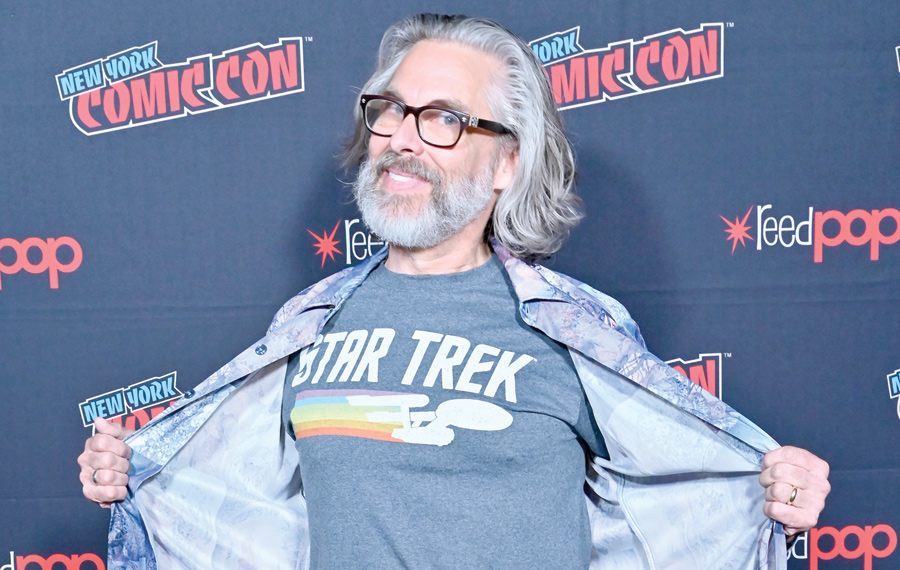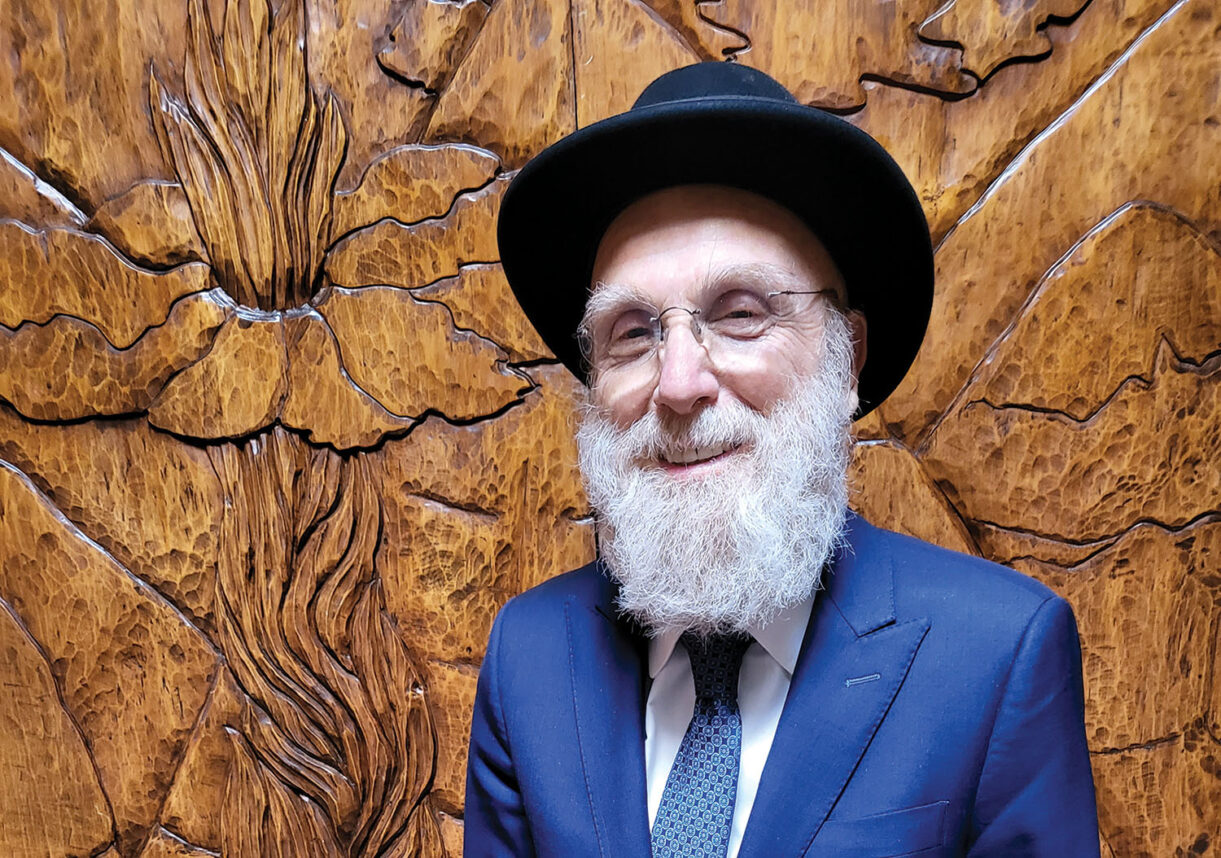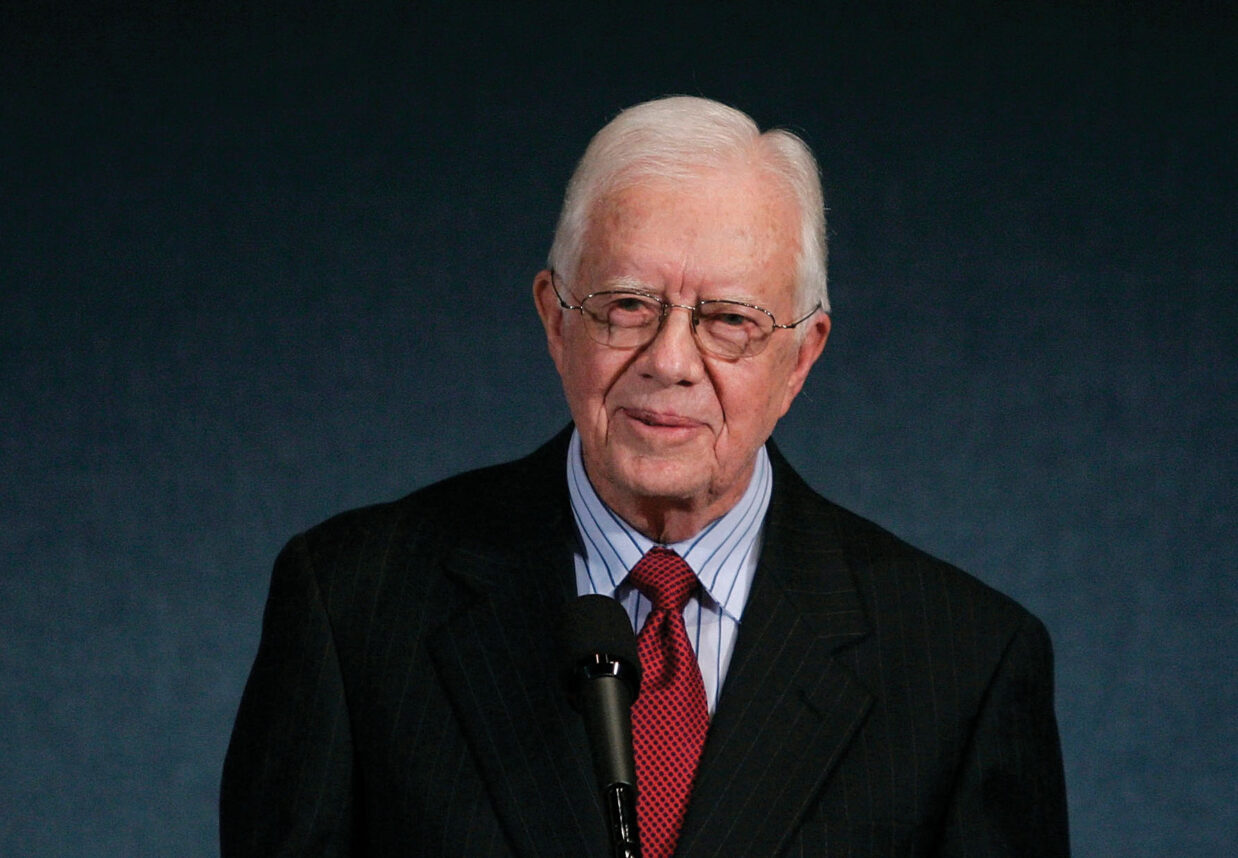
Pulitzer Prize-winning novelist Michael Chabon is best known for his acclaimed novels “The Amazing Adventures of Kavalier & Clay,” “Moonglow,” “Wonder Boys” and “The Yiddish Policemen’s Union.” In the last decade, he’s had success in Hollywood as the screenwriter of “Spider-Man 2,” “John Carter” and the Netflix miniseries “Unbelievable,” which he created and produced with his wife, novelist Ayelet Waldman. His latest project takes him into the “Star Trek” universe, and happily back to his fanboy childhood, as the creator, writer and showrunner of the CBS All Access series “Star Trek: Picard.”
“I’ve been a fan since I was 10 years old,” Chabon told the Journal of the franchise that began 54 years ago. He added he first saw the original “Star Trek” TV series when he was 4, with his father, not realizing what it was. He’s thrilled to be working on “Picard,” which is different from previous “Trek” incarnations on several levels. Atypical for TV, it stars a septuagenarian, “The Next Generation’s” Patrick Stewart, as Jean-Luc Picard. And it doesn’t follow the usual template of a spaceship crew exploring planets and encountering alien species. “It’s about a man who is no longer a Starfleet officer, not in command of a vessel, who assembles a makeshift group of people who go on a personal mission that has to do with his history and unfinished business that he has,” Chabon said.
Nevertheless, “Picard” has DNA in common with the “Treks” that came before it. “From the beginning, ‘Star Trek’ offered good writing, storytelling, characters and an interesting mixture of drama, action and humor. It offered an optimistic vision of the future — that was actually a vision of the present — in which we put our differences aside to work together,” Chabon said.
He added, “ ‘Star Trek’ has always deliberately tried to be relevant, to reflect the time in which it was made: the Cold War era and the looming threat of Armageddon, the Vietnam War, racial politics, the dangers posed by unchecked technology. All of the things that people were worried about at the time were reflected in it, and that’s what made it relevant then and makes it eternally relevant now.”
“ ‘Star Trek’ has always deliberately tried to be relevant, to reflect the time in which it was made. All of the things that people were worried about at the time were reflected in it, and that’s what made it relevant then and makes it eternally relevant now.” — Michael Chabon
Although Chabon’s novels often contain Jewish characters and stories, that’s not the case with “Picard.” But he does find Jewish themes in it. “It’s very much a show about teshuvah and atonement and a reckoning with what one has done and has not done in the past,” he said. “It’s driven by Picard’s sense that he missed the mark and failed to live up to his ideals and promises that he made. He’s on a journey to make amends and do what he can to repair the damage that was done by falling short of the mark.”
With Eastern European roots on both sides, Chabon grew up in Columbia, Md., in a “not especially observant home” but “identified very strongly as Jewish. I had a bar mitzvah, we celebrated the High Holy Days and occasionally lit candles on Friday night,” he said.
In the past, he attempted to connect more deeply with the religious side of Judaism by becoming more involved in spiritual practice and synagogue attendance but found it difficult to justify. “So many problems in the world are the result of religious intolerance. I tried for 10 years to ignore how religions treat gay people and women, but I couldn’t do it,” he said. “But the cultural heritage of it, the history, experience, Yiddish language, literature, art, music, humor and all of that, it’s incredibly powerful and meaningful to me. I can find my own meaning in Torah without having to study it in a traditional framework.”
Under a production deal with CBS, he and Waldman will produce a miniseries for Showtime based on “The Amazing Adventures of Kavalier & Clay,” about a pair of Jewish cousins who are aspiring comic book creators. Chabon has been trying to get it made for years, and almost did in 2006. “There was a time when Adrien Brody would have been perfect for it but now he’s too old,” he said. He and Waldman will write and serve as showrunners, which means stepping back from showrunning “Picard” in Season Two, although he will still write episodes. An adaptation of Waldman’s memoir, “A Really Good Day,” is in the works for Showtime.
The parents of four children ages 17 to 25, all now out of their house in Berkeley (the youngest is at boarding school), Chabon and Waldman also are working on new books. They most recently collaborated on the anthology “Fight of the Century: Writers Reflect on 100 Years of Landmark ACLU Cases.”
“We love being together and working with each other. We crack each other up all the time,” Chabon said of Jerusalem-born Waldman, whom he met in 1992 on a blind date set up by mutual friends and proposed to three weeks later. “I delight in the way her mind works, her thoughts and perceptions. She has an interesting way of looking at people and the world. I presume she feels the same way about me.”
Chabon finds it much more difficult to take pride in his accomplishments than “the nachas I’ve received from my kids, maybe because I’m dissatisfied with the things I’ve done,” he said. “Looking back after finishing something, I see the shortcomings in it.” But he is proud of the work he did as chairman of the MacDowell Colony, an artists’ residency in New Hampshire. “I’m glad I accepted the opportunity when my natural inclination was to say no.”
Looking ahead, “I just want to keep doing what I do. I hope I’m fortunate enough to keep writing books, working in television, and be able to stay healthy and sane for as long as possible,” he said. “And not putting pressure on anybody, but it would be nice to get a grandkid or two in the near term.”
New episodes of “Star Trek: Picard” stream Thursdays on CBS All Access.






















 More news and opinions than at a Shabbat dinner, right in your inbox.
More news and opinions than at a Shabbat dinner, right in your inbox.